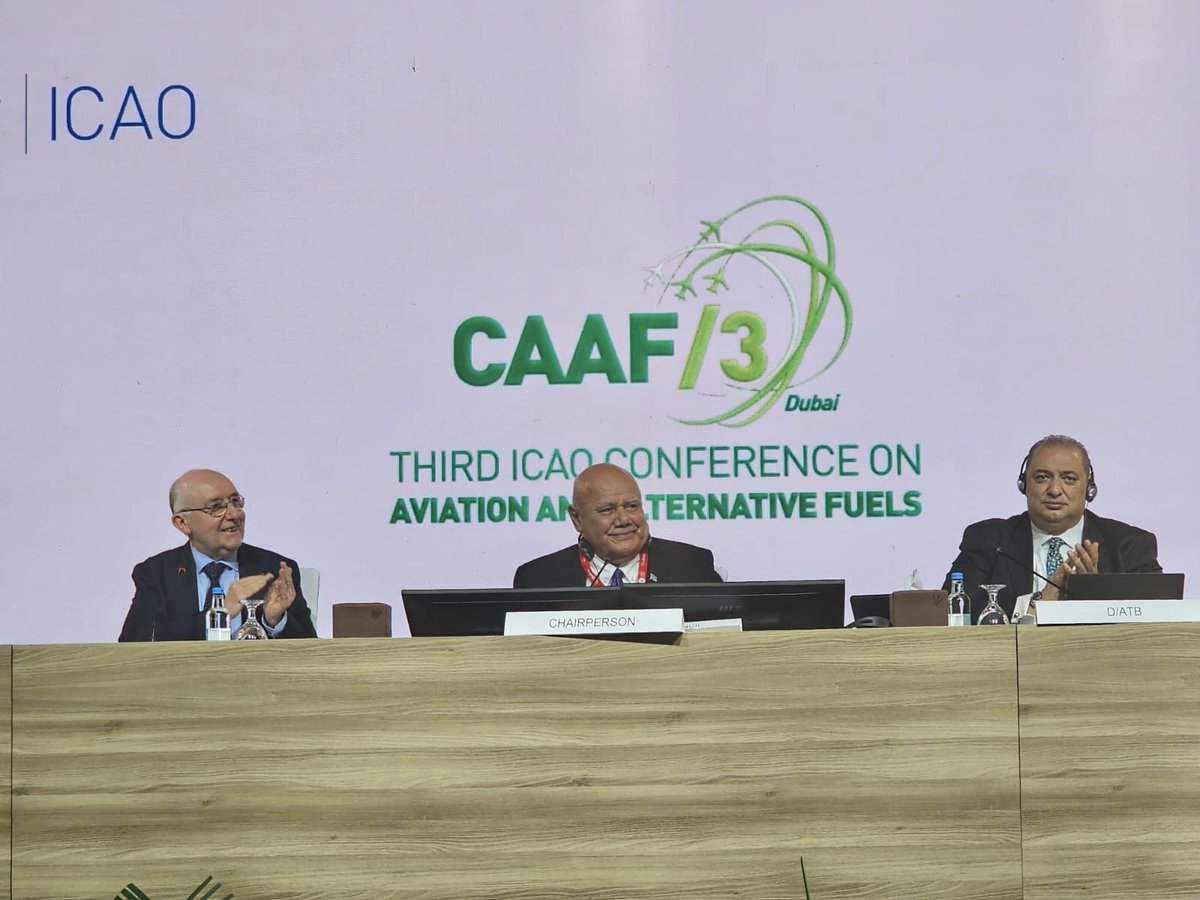ICAO Conference sets ambitious global framework for clean energy transition in international aviation

In a groundbreaking move towards accelerating the decarbonization of the international aviation sector, the Third ICAO Conference on Aviation and Alternative Fuels (CAAF/3) concluded in Dubai on November 24, 2023.
The conference marked a significant milestone as ICAO (International Civil Aviation Organization) and its Member States unveiled a robust framework to usher in cleaner and more sustainable alternative fuels for aviation.
Central to the conference’s outcomes was the adoption of the ICAO Global Framework for Sustainable Aviation Fuels (SAF), Lower Carbon Aviation Fuels (LCAF), and other Aviation Cleaner Energies.
This groundbreaking agreement demonstrates a collective commitment to achieving a global aspirational Vision – a 5% reduction in CO2 emissions in international aviation by 2030, compared to zero cleaner energy use.
The comprehensive framework includes key elements such as a unified Vision for the clean energy transition, harmonized regulatory foundations, initiatives for effective implementation, and improved access to financing.
Emphasising inclusivity, the framework underscores the principle that “No Country is Left Behind.”
Each participating State’s unique circumstances and capabilities will guide their contributions to the Vision, ensuring a flexible approach without imposing specific obligations or commitments in the form of emissions reduction goals.
ICAO Council President, Salvatore Sciacchitano highlighted, “The role of the Framework is to facilitate the scale-up of the development and deployment of SAF, LCAF, and other aviation cleaner energies globally. It provides clarity, consistency, and predictability to stakeholders, fostering a conducive environment for growth in cleaner energy use.
“Investors, governments and others all need greater certainty regarding the policies, regulations, implementation support, and investments required so that all countries will have an equal opportunity to contribute to, and benefit from, the expansion in the production and use of these fuels and the expected emissions reductions they will lead to.”
Juan Carlos Salazar, ICAO Secretary General, emphasised the need for substantial and sustained investment to achieve net-zero carbon emissions by 2050.
He stressed the importance of reliable and affordable support, especially for States with specific needs, as they play a crucial role in realizing this ambitious goal.
“Achieving net-zero carbon emissions by 2050 will require substantial and sustained investment and financing over the coming decades.
“We must furthermore assure reliable and affordable support and capacity-building for those States with particular needs, as they will be depending on it to help play their part.”
ICAO’s Global Framework aligns with the aviation sector’s current goal of achieving net-zero carbon emissions by 2050, a commitment adopted by the ICAO Assembly in 2022.
The Framework aims to provide a clear and steady signal to public and private investors, as well as fuel producers, outlining the opportunities available to support and unlock the potential of the aviation sector’s energy transition.
The outcome of the ICAO Conference clearly signify a monumental step forward in the global pursuit of sustainable aviation, setting the stage for a cleaner and greener future in international air travel.







